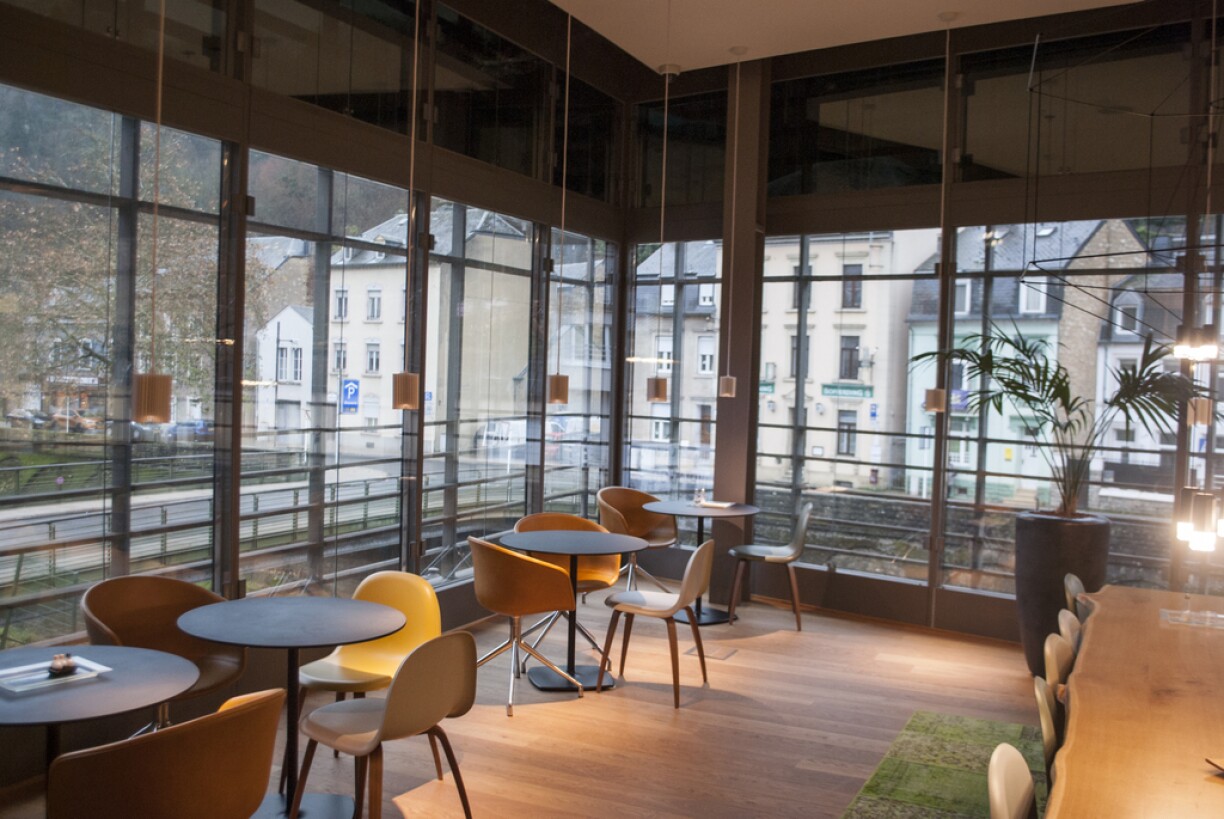
Lindma is based in Estonia, where she is responsible for Microsoft’s development centres in Luxembourg, Norway, and Estonia, as senior HR manager for Office 365. Willaert is Microsoft’s HR lead for the company’s Belgium and Luxembourg-based organisations, though not development centres.
Both Lindma and Willaert are very forthcoming during our interview, and in this article we’ll briefly dive into what the organisations are doing here in the Grand Duchy, what they look for when recruiting, and what you can expect from a career with them.
Before getting into details such as what a career with either company might entail, let’s take a quick look at what they actually do in Luxembourg.
Starting with Willaert and Microsoft, she explained that “the activities we have in Belgium and Luxembourg are marketing and sales operations. We have around 400 employees combined in Belgium and Luxembourg, of which 200 employees are working for the Belgium and Luxembourg territory specifically, and we have around 196 employees who are working for either our head office or our area offices or our global domains organisation.”
Lindma, meanwhile, noted that their range of activities in the Grand Duchy are somewhat broader, noting that they offer positions ranging from sales and marketing through to engineering.
This would be the Skype that you use on your home PC to keep in touch with friends and family. In addition to that, Lindma says that they also work on aspects of the infrastructure behind Skype for business and Microsoft Teams, and that they have certain finance and operational functions in Luxembourg as well.
Skype employs about 700 people in Estonia, Prague and Luxembourg, of which around 40 are based here.
As noted in the first instalment of this article, Luxembourg is notoriously good at attracting large international companies. Some put that down to favourable tax arrangements, but like Yellowlees of Amazon, Lindma and Willaert provided a rather different rationale.
Lindma explains that the Skype offices in Luxembourg opened in 2004, long before it was acquired by Microsoft in 2011. This also made it one of the first Skype offices in Europe, having opened after the one in Estonia. Luxembourg was a good location for the company, says Lindma, as it has been and remains “a great location to hire talent. It’s centrally placed, and is a financial centre.”
On the Microsoft side of things, Willaert said that “One of our key values ... is being customer-obsessed, and you can only be customer-obsessed if you are close with your customer, close physically as well and have a good understanding of the market.”
If you’re an engineer, that’s a good starting point – Lindma notes that “there are much more open positions than good engineers to fill [them]”. But that doesn’t mean that you have to be an engineer to get a job with either company.
Willaert adds that they take a balanced approach and look at both ‘hard’ and ‘soft’ skills: “We have this kind of tagline that we love to use, and I believe it says a lot. It says come as you are, and do what you like. So, in first instance we are looking for people who are obviously passionate about technology, who believe in technology and the impact it can have. But especially for my side of the organisation, where you focus on sales and marketing people, we do expect a certain level of technical savviness. But we are also convinced that we can teach them that, and we invest a lot in the technical readiness.”
They further stress that it’s important to have an appetite for learning, as the ICT sector is changing quickly, which also requires hire energy. Willaert notes that “these are the things in the interview we would screen for rather than do you have certain degrees. What’s obviously becoming much more relevant for us is having people who have the right industry knowledge. Because more and more we see that our sales people are engaging in conversations with business managers rather than IT people, especially if you talk about providing a service to a company, so we need someone who understands an industry and what their challenges are.”
There’s no doubt that the companies offer a substantial amount of training to employees, both mandatory and elective. Willaert places particular emphasis on ‘technical savviness’, and explains that they often talk about ‘levels’ — the lowest level is 100, and it goes up to 5-600, “which is the really ‘technical nerds’ as you call them.” She explains that “we now decided that we are engaging for our subsidiaries both in Belgium and Luxembourg training courses delivered face-to-face by our more technical colleagues to make sure all our employees are at least level 200.”
Lindma adds that it’s the “same on the engineering side. We encourage people to book time on their calendar each and every week to learn new skillsets, to build up their understanding of the world, what is happening, both soft side and new programming languages. AI is definitely a topic that we are encouraging people to deal with.”
The training offered goes beyond the technical, though. Willaert notes that the training available to employees ranges from typical soft-skills “like communication styles, like presentation skills, how to give feedback, how to receive feedback, going all the way up to the mindfulness courses that we offer.”
And, of course, they do offer language courses – though at the moment these are limited to French here in Luxembourg: “We offer French, not Luxembourgish – I’m sorry!” said Lindma. However, they are open to offering other languages as well if interest is expressed internally or by their customers.